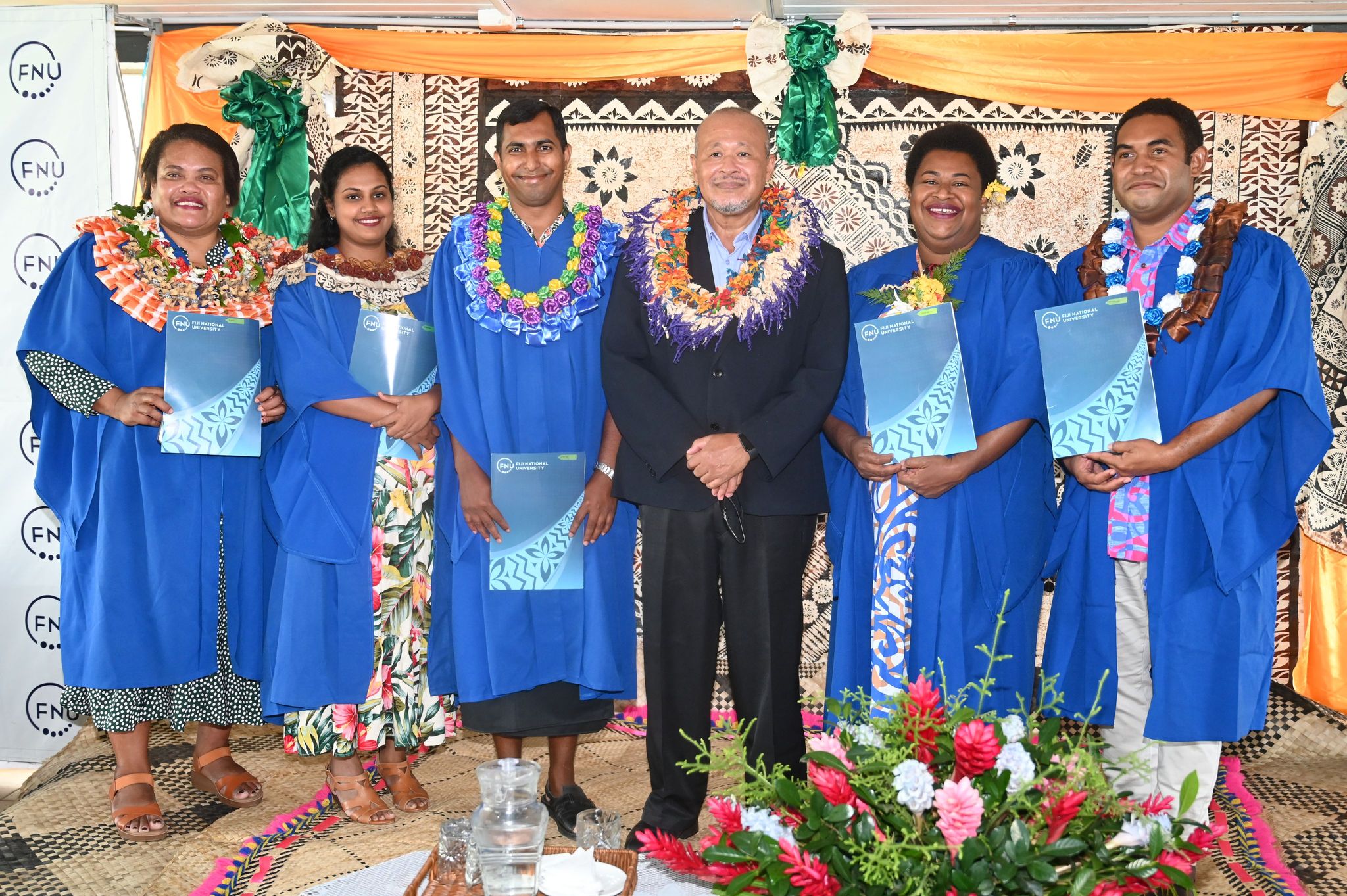MINISTRY STAFF GRADUATE FROM PLANT HEALTH CLINIC
July 12, 2024

Four officers from the Ministry of Agriculture and Waterways graduated from the Plant Health Clinic training at the Fiji National University Koronivia Campus today and were reminded today of their roles as plant health doctors.
Speaking to the 21 participants from Solomon Islands, Papua New Guinea, Vanuatu, Tonga, Samoa and Fiji, Permanent Secretary for Agriculture and Waterways, Dr. Andrew Tukana said that their graduation marks a significant milestone and is a testament to their commitment to enhancing agricultural practices.
“The concept of plant health is not new in the world and this Plant Health Clinic Workshop is significant for the Pacific Island region particularly in light of the impact of climate change as well as the potential risks of re-emerging endemic pests and diseases, as well as the risks of introducing exotic pests and plant diseases in Fiji and the Pacific,” explained Dr. Tukana.
Dr. Tukana also stressed the importance of building the capacities of plant health doctors who can diagnose pests and disease problems as well as providing timely advice and solutions to farmers.
“Solutions should be based on the principles of Integrated Pest Management and using cultural practices as well as protecting natural enemies of pests and diseases rather than relying solely on chemicals,” he said.
“You all were invited to attend the course because of your experience of plant health clinics. I hope during your three weeks training here at the FNU, you have learned and have enhanced your knowledge on Plant Health and have suggested improvements nationally and regionally. I certainly believe that you will share your knowledge when you return to your countries to inaugurate and sustain your national programs.”
Agriculture Assistant (Lawaqa) Tanarusa Naveata said with the partnership and the knowledge gained, he is ready to deliver his best to the farmers in the areas that he serve.
“We need good partnerships, good resources, good scientific knowledge, and good people on the ground to solve issues of emerging plant problems,” he said.
“I serve the Sigatoka area where farmers export fresh crops and vegetables to New Zealand and other countries. This training has really enhanced my knowledge and I know that I am equipped with the necessary skills and knowledge, to advise our farmers on the good cultural and biological control to follow.”
“In order for us to main our markets, we must work together and strive towards producing healthy and quality food.”
The Plant Health Clinic training was made possible through collaborative efforts of the Australian Centre for International Agricultural Research (ACIAR), Fiji National University, and the Ministry of Agriculture and Waterways.
ENDS
